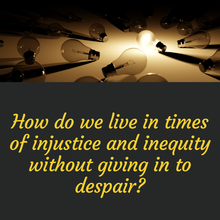Current events and racial/social injustices can have an impact on our mental wellbeing. We welcome conversations in individual counseling and groups at SCS about what is happening in our communities and around the world. Let's Talk, which provides drop-in support, can also be a great resource where you can speak with a counselor of your choosing virtually or in-person.
Student Mental Health Twin Cities Campus
Additional mental health support resources and information about related events and learning opportunities for our entire UMN community
Let's Talk
Let's talk is a program that provides informal virtual drop-in consultation for UMN students throughout the academic year. No appointment is necessary. Let's talk is not a substitute for formal counseling and does not constitute mental health treatment, but counselors can listen to specific problems, provide support, help explore solutions, and give information about other resources.
Let's Talk is not designed to provide crisis support-if you are currently experiencing a mental health crisis please utilize one of these resources.
Affinity Groups (In Collaboration with our Campus Partners)
Student Counseling Services (SCS) offers a range of online educational workshops, affinity groups to connect and create community, the and therapy groups for increased support and moving toward healing or change around specific challenges. Students are able to learn new skills and strategies, connect with one another, and share difficulties and experiences in a safe, supportive online environment. Some workshops meet for the entire semester, and others for 3 or 6 weeks.
Additional Resources
Mindfulness Resources
- Here on Student Counseling Service’s Mindfulness Page, you’ll find a variety of different mindfulness practices from some of our staff members
Digital Self-Care Tool Kit (UMN Women's Center and the Gender and Sexuality Center for Queer and Trans Life)
"This toolkit is brought to you by the Women’s Center and the Gender and Sexuality Center for Queer and Trans Life. These are resources we recommend and often use to re-center, ground, and engage our practice of radical self-care. As women-identified, femme, Black, indgenous, people of color, trans, and queer folx, self-care takes on special significance for us as an act of personal resistance to systems and conditions that are oppressive. We share these resources with you in hope that you find one or more that you can return to for your own self-care practice."
Post - Election Digital Self-Care Tool Kit (UMN Women's Center and the Gender and Sexuality Center for Queer and Trans Life)
"This toolkit is brought to you by the Women’s Center and the Gender and Sexuality Center for Queer and Trans Life. These are resources we recommend and often use to re-center, ground, and engage our practice of radical self-care. As women-identified, femme, Black, indigenous, people of color, trans, and queer folx, self-care takes on special significance for us as an act of personal resistance to systems and conditions that are oppressive. We share these resources with you in hope that you find one or more that you can return to for your own self-care practice"
Current National Discourse Stress Kit - (Penn State CAPS)
"Tips and resources to cope with the current national discourse Brought to you by Penn State Harrisburg
Counseling and Psychological Services (CAPS)"
